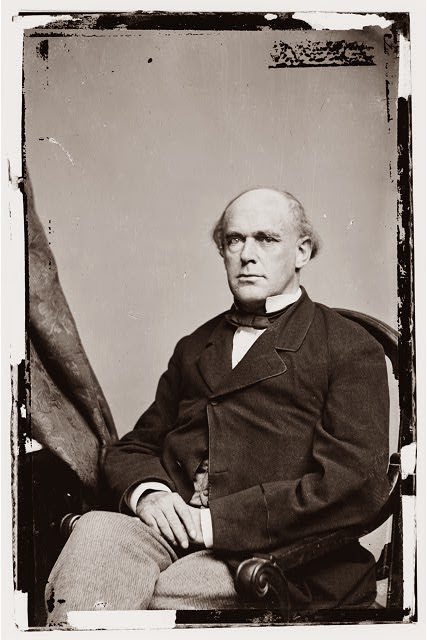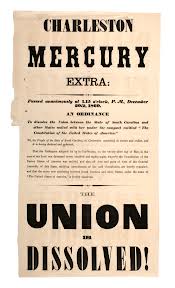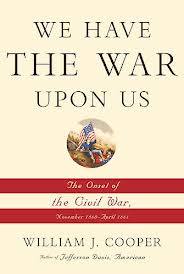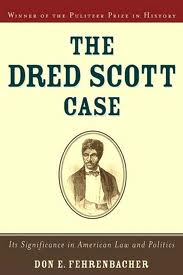REHEARSAL FOR RECONSTRUCTION (Part the Second)
 |
| Salmon Portland Chase (1808-1873) |

REHEARSAL FOR RECONSTRUCTION (Part the Second)
 |
| Salmon Portland Chase (1808-1873) |
REHEARSAL FOR RECONSTRUCTION (Part the First)
 |
| Former slaves of Confederate Brigadier General Thomas Drayton photographed on Hilton Head Island, May 1862. |
In which we set the stage for a discussion of the Port Royal Experiment, which took place on South Carolina’s Sea Islands and which many people view as a “rehearsal for reconstruction.”
Our book recommendation for this episode is Freedom National: The Destruction of Slavery in America, 1861-1865 by James Oakes.
“Was Lincoln really a ‘Reluctant Emancipator’? Freedom National answers that question eloquently and fully. Oakes argues that Lincoln, from the moment of his inauguration, began using every political and military means at his disposal to wipe out slavery forever.” ~ Howell Raines, Washington Post
Listen to Episode 77: PortRoyalExperiment
FREMONT’S FOLLIES
In which we look at John C. Fremont’s tenure as commander of the Federal’s Western Department in 1861 and see how troubled Missouri proved to be his downfall.
Our book recommendation for this episode is Pathfinder: John Charles Fremont and the Course of American Empire by Tom Chaffin.
“The most eloquent, understanding, and yet very candid biography of Fremont that has appeared to date.” ~ Howard R. Lamar, Yale University
Listen to Episode 69: Fremont’sFollies
CONTRABANDS / BIG BETHEL
In which we discuss the decision to declare runaway slaves “contraband of war,” and then we look at the Battle of Big Bethel which took place on June 10, 1861.
Our book recommendation for this episode is The Fiery Trial: Abraham Lincoln and American Slavery by Eric Foner.
“While many thousands of books deal with Lincoln and slavery, Eric Foner has written the definitive account of this crucial subject, illuminating in a highly original and profound way the interactions of race, slavery, public opinion, politics, and Lincoln’s own character that led to the wholly improbable uncompensated emancipation of some four million slaves. Even seasoned historians will acquire fresh and new perspectives from reading The Fiery Trial.” ~ David Brion Davis
Big Bethel: The First Battle by John V. Quarstein
Battle of Big Bethel: Crucial Clash in Early Civil War Virginia by J. Michael Cobb, Edward B. Hicks, and Wythe Holt
Listen to Episode 50: ContrabandsBigBethel
In which we discuss the birth of the Confederate States of America in Montgomery, Alabama in February 1861.
Our book recommendation for this episode is Look Away! A History of the Confederate States of America by William C. Davis.
“Behind the masks of the Confederate armies was a government and a home front far removed from the ‘moonlight and magnolia’ traditions too often presented. Davis has produced a pathbreaking work in every sense. Concentrating on political, social, and economic subjects, this book is so revealing that it will surely become a basic reference work in Civil War history.” ~ James I. Robertson, Jr, author of Stonewall Jackson: The Man, the Soldier, the Legend
Listen to Episode 25: ConfederateStatesAmerica
In which we continue our discussion of secession by asking if the southern states had a right to secede, or if secession was rebellion. Then, we look at the message the secession commissioners spread throughout the South in late 1860/early 1861.
Plus, there’s a special announcement at the end of this episode!
Our book recommendation for this episode is Apostles of Disunion: Southern Secession Commissioners and the Causes of the Civil War by Charles B. Dew.
“This incisive history should dispel the pernicious notion that the Confederacy fought the Civil War to advance the constitutional principle of states’ rights and only coincidentally to preserve slavery.” ~ Allen D. Boyer, New York Times Book Review
Listen to Episode 24: RebellionSugarcoated

In which we look at the fact that seven southern states withdrew from the Union between Abraham Lincoln’s election and his inaugural. We answer the question: What caused the secession of these states?

Our book recommendation for this episode is We Have the War Upon Us: The Onset of the Civil War, November 1860-April 1861 by William J. Cooper.
“Written from the perspectives of Americans who experienced the efforts to forestall disunion and war during the five months between November 1860 and April 1861… this book captures the drama and tensions of those perilous times. Especially noteworthy is Cooper’s treatment of William H. Seward, whose struggles to patch together a compromise form the main thread running through this important book.” ~ James M. McPherson
Listen to Episode 23: SecessionFever
In which we discuss the importance of John Brown’s assault on the federal arsenal & armory at Harper’s Ferry, Virginia in October 1859.
Our book recommendation for this episode is Midnight Rising: John Brown and the Raid that Sparked the Civil War by Tony Horwitz.
“With his customary blend of rich archival research, on-location color, and lyrical prose, Tony Horwitz has delivered a John Brown book for our time. Part biography, part historical narrative, Midnight Rising is a riveting re-creation of the Harper’s Ferry raid, told with an unblinking sense of Brown’s tragic place in American history. Writing with enveloping detail and a storyteller’s verve, Horwitz shows why Brown was- and still is- so troubling and important to our culture.” ~ David W. Blight
Listen to Episode 20: JohnBrownPartFirst
In which we talk about the results of the Dred Scott case in 1857 & the fiasco over the Lecompton Constitution in 1858, and we show how the snowballing negative consequences of those events finally caused the Democratic Party to split, once & for all, along sectional lines. A unified Republican Party will take advantage of that split & win the presidency in 1860.

Our book recommendation for this episode is The Dred Scott Case: Its Significance in American Law and Politics by Don E. Fehrenbacher.
On March 6, 1857 Chief Justice Roger B. Taney delivered the Supreme Court’s decision against Dred Scott. Scott, a slave, maintained he had been emancipated as a result of having lived with his master in territory where slavery was forbidden by the Missouri Compromise. The decision did much more than resolve the fate of an elderly black man and his family, however; Dred Scott vs Sanford was the first instance in which the Supreme Court invalidated a major piece of federal legislation. the decision declared that Congress had no power to prohibit slavery in the federal territories, thereby intensifying the sectional conflict over slavery.
Listen to Episode 15: DredScott
In which we talk about Stephen Douglas’ sponsorship of the Kansas-Nebraska Act of 1854, the ensuing violence in “Bleeding Kansas,” and the rise of the Republican Party as a result of Northern outrage over the Kansas-Nebraska Act.

Our book recommendation this time is Bleeding Kansas: Contested Liberty in the Civil War Era by Nicole Etcheson.
Few people would have expected bloodshed in the Kansas Territory. But civil war tore this territory apart in the 1850s, and “Bleeding Kansas” became a forbidding symbol for the national crisis over the expansion of slavery. Etcheson seeks to revise our understanding of this era by focusing on whites’ concerns over their political liberties. The first comprehensive account of the conflict in Kansas in more than thirty years, her study emphasizes the issue of popular sovereignty rather than slavery’s moral or economic dimensions. As Etcheson demonstrates, the struggle over the political liberties of whites may have heightened the territory’s turmoil, but it led eventually to a broadening of the definition of freedom to include African-Americans. Her insightful re-examination sheds new light on this era and is essential reading for anyone interested in the ideological origins of the Civil War.

Listen to Episode 12: BleedingKansas